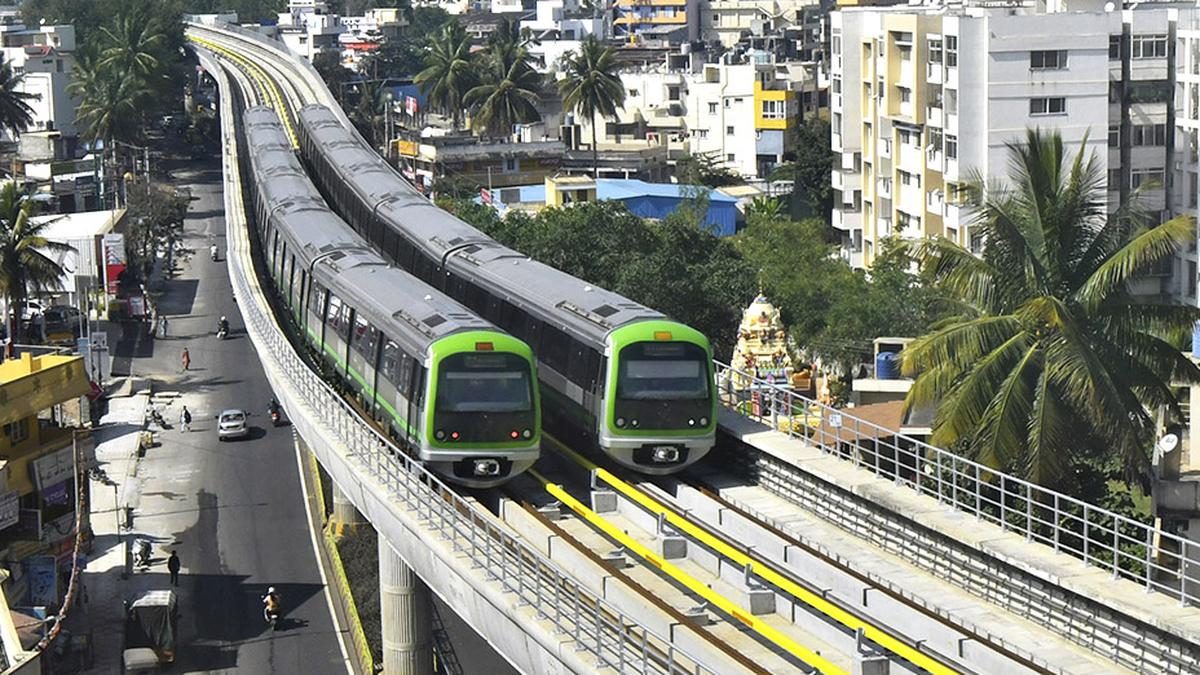
Bengaluru metro’s fare hike fiasco and backlash from commuters Premium
The Hindu
Following public outcry, Karnataka Chief Minister Siddaramaiah intervened on February 13, directing BMRCL Managing Director M. Maheshwar Rao to roll back ‘abnormal’ fare hikes. In response, BMRCL revised its decision, capping the maximum stage-wise fare increase at 71%. However, the base fare and the highest ticket price remain unchanged at ₹10 and ₹90, respectively, as originally announced.
In a major setback for public transport users, the Bangalore Metro Rail Corporation Limited (BMRCL) announced a steep hike in Namma Metro fares on February 9, drawing widespread criticism from commuters and mobility experts. The fare increase, which in some cases neared 100%, triggered a political tussle between the ruling Congress and the opposition BJP, with both parties blaming each other for the move.
Following public outcry, Karnataka Chief Minister Siddaramaiah intervened on February 13, directing BMRCL Managing Director M. Maheshwar Rao to roll back ‘abnormal’ fare hikes. In response, BMRCL revised its decision, capping the maximum stage-wise fare increase at 71%. However, the base fare and the highest ticket price remain unchanged at ₹10 and ₹90, respectively, as originally announced.
Close on the heels of the Karnataka government announcing a 15% hike in bus fares, the Bangalore Metro Rail Corporation Limited (BMRCL) on February 9 announced a fare hike for Namma Metro. The revised fare structure came into effect the following day, significantly increasing travel costs for metro commuters.
Under the new structure, the maximum fare has increased from ₹60 to ₹90, while the minimum fare for the shortest distance (0-2 km) remains at ₹10. However, fares for the 2-4 km distance have risen from ₹15 to ₹20, and for distances beyond 30 km, passengers now have to pay ₹90. This marks the first fare revision in over seven years.
Adding to commuter concerns, BMRCL has also removed discounts for QR code users. Now, only smart card users will get a discount, though at a reduced rate of 5%. The minimum balance requirement for smart cards has also been raised from ₹50 to ₹90. However, smart card users can avail of an additional discount of 5% during off-peak hours, totalling 10% for those avoiding rush hours. Off-peak hours are defined as before 8 a.m., between 12 p.m. and 4 p.m., and after 9 p.m. on weekdays. Additionally, a 10% discount will be available on all Sundays and national holidays.
The fare revision also extends to tourist and group tickets. The new rates for one-day, three-day, and five-day passes are now ₹300, ₹600, and ₹800, respectively.
BMRCL stated that the fare hike follows recommendations from a fare fixation committee (FFC), formed by the Union government on September 7, 2024, and chaired by a former High Court judge. The committee submitted its report on December 16, suggesting a fare revision based on operational costs, passenger feedback, and expert consultations.













